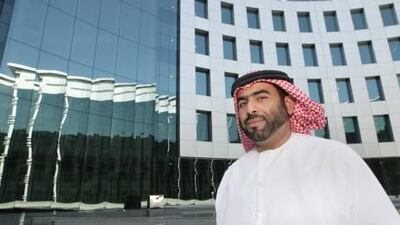DUBAI // The killings of the Chechen warlord Sulim Yamadayev and Lebanese singer Suzan Tamim, revelation of the details of the murder of the senior Hamas official Mahmoud al Mabhouh and the "sex on the beach" arrest made headlines globally, putting Dubai police in the world spotlight. Their responses have set the parameters of their relationship with the media - and the public.
The police are doing a better job than most in the Arab world when it comes to communication, said Dr Ali Jaber, the dean of the Mohammed Bin Rashid School For Communication at the American University of Dubai. Their media relations compared to other Arab nations, where the relationship is usually oppressive and abusive, is unprecedented, he said.
"Dubai police are engaging in a healthy dialogue and have a fact-orientated attitude with the press," he said. The Al Mabhouh case was an example of a situation where police were able to play the media game well, he said.
"Through the calculated and slow uncovering of irrefutable evidence they remained dominant in the press over several weeks," he said. "They simply won the show."
Employing information to serve police objectives in maintaining security and preserving an image of strong and efficient law enforcement are the main criteria the force's media security department try to meet daily, according to Butti al Falasi, the director of media security at Dubai police.
"Our main aim in releasing information is to achieve security and safety, therefore it is important to understand how to employ information by releasing it in the right medium at the right time," he said. "Building trust between us and the public and enhancing our image as a strong law enforcement authority is also important to us."
The police tend to deal with information flow in two ways, Mr al Falasi said. The first was a directed way in the form of press releases or conferences, with the second coming in the form of response to the concern or clarifications of the public or the media.
"We have respect for the media and always seek to be transparent but I do agree that sometimes there is a calculated release of information," he said. "However, police in general do not block any information unless its release would affect the course of the investigation or we sometimes withhold information to protect victims."
Mr al Falasi also admitted that Emirati society had a unique nature and there were some sensitive issues to be taken into consideration before releasing information in those cases.
This year the department received 320 media requests from media organisations, with about 20 per cent of them rejected according to the department's statistics. Among the reasons cited for rejections were that the requests were on topics which did not fall within the mandate of the force, the cases were under adjudication or that the topic had been highlighted in the media previously.
The image of the police has undergone a drastic change in recent years according to Mr al Falasi because of the speed and high level of professionalism that the force showed when it dealt with them.
"The fact that we were able to solve high-profile crimes quickly and with clear evidence, especially in the past five years, created a perception among the public that we always need to do that," he said. "This reputation became a challenge for the force and to us. We understood the need to always be prepared."
Starting from next year a new media production section will work on improving the image of the force. While it was unclear how the group will work as it is still in the preparatory stages, Sheikh Maktoum Saed Al Maktoum, the head of the centre, said that they will attempt to showcase the force on an international stage.
"Our key message will be 'Do not mess with us'," he said. "For those living here it is a security message that you are safe but it is also a message for anyone who has criminal intentions."
Worldwide exposure for Dubai
More than 4,200 articles were published worldwide on issues related to the Dubai police in the first 10 months of this year, police statistics showed.
The articles were monitored and documented by the police media security department, which was set up in 1971. The department has 30 employees working in four sections to monitor areas of specialisation and prepare responses if the situation requires. It also has three free publications distributed in public areas and at government entities with a total volume of 43,000 copies a year.
The department has an average annual fixed expense budget of Dh3million and separate budgets for additional projects.

